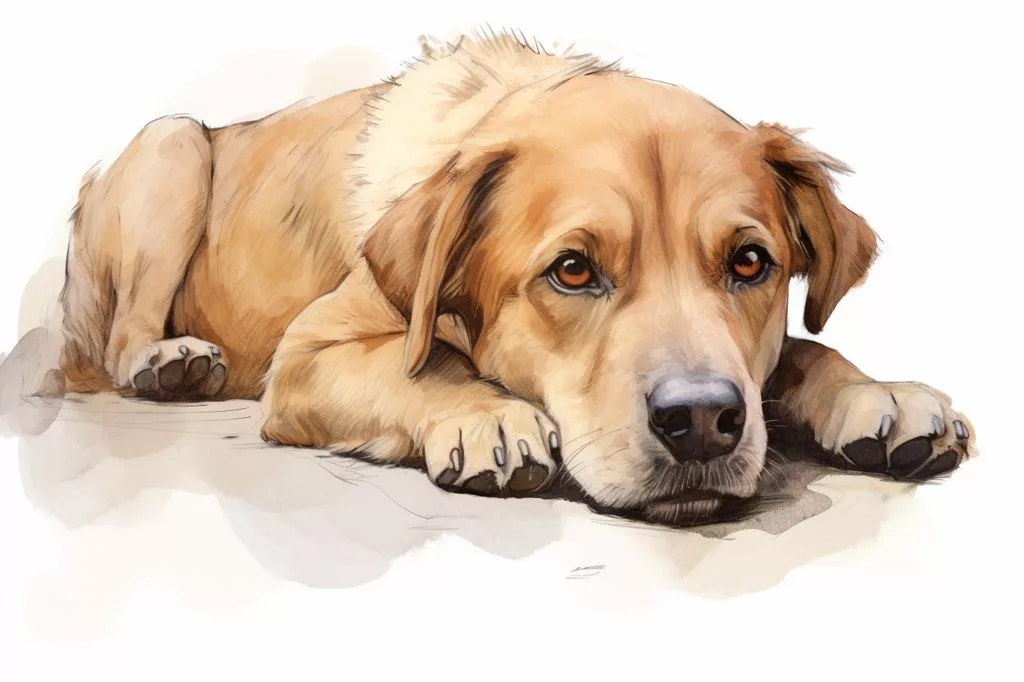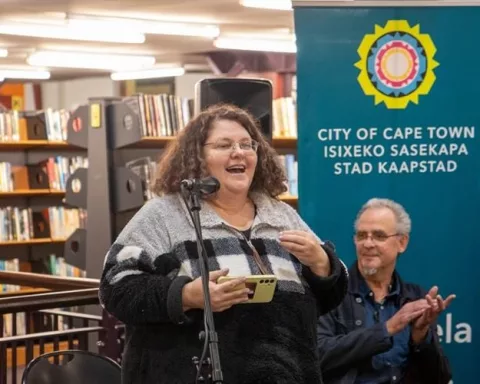The Carol Ferreira case highlights the importance of public oversight in defending vulnerable animals, following her conviction on animal cruelty charges. The case centers around a dog named Spud, who was found severely emaciated and with a maggot-infested wound. Spud’s tragic story serves as a reminder of the need for ongoing education and awareness initiatives to prevent animal abuse, promote responsible pet ownership, and foster a culture of empathy and compassion towards all living beings.
A Landmark Ruling on Animal Cruelty
The Muizenberg Magistrates Court recently issued a notable ruling, emphasizing the vital part society plays in ensuring the welfare of animals. Carol Ferreira, a 67-year-old woman, was sentenced to 12 months imprisonment, suspended for five years. This judgment resulted from Ferreira’s conviction on appalling animal cruelty charges under the Animals Protection Act 71 of 1962. The case underscores the importance of public oversight in defending vulnerable creatures who cannot speak for themselves.
The case unfolded in June 2022 when a vigilant citizen informed the Society for the Prevention of Cruelty to Animals (SPCA) about a dog’s deplorable condition. Inspector Elani Graham, responding to the grievance, found a mixed breed dog named Spud in a state of extreme neglect. Severely emaciated and unable to stand, Spud’s living situation was equally appalling, with accumulated feces and waste surrounding him and no access to clean water.
Spud’s Heartbreaking Plight
Further investigation exposed the harrowing extent of Spud’s maltreatment. The SPCA Animal Hospital veterinarians who examined him discovered a severe, maggot-infested wound on his chest, multiple growths, and sores scattered across his weak body. Additionally, an enlarged left carpal joint indicated osteomyelitis, previous fractures, or possible neoplasia, further restricting his mobility.
The veterinary report emphasized Spud’s prolonged suffering: “His overall condition, that of the wound and emaciated and collapsed demeanor, show a prolonged period of inadequate nutrition, care, and inadequate or complete absence of veterinary attention.” The veterinarians concluded that euthanasia was the most humane and compassionate option for Spud, given his condition.
Magistrate Vallie’s moving words during the sentencing echoed in the courtroom: “A dog cannot speak for itself and is dependent on people to take care of it.” This statement serves as a powerful reminder of society’s shared responsibility towards animals, whose well-being depends on human kindness and attention.
The Importance of Human-Animal Bonds and Legal Protection
Throughout history, animals, particularly dogs, have inspired artists and writers with their empathy and loyalty towards humans. From ancient Greek literature to modern novels, dogs have frequently been depicted as symbols of dedication and steadfastness. This enduring bond between humans and dogs has been celebrated for centuries, underscoring the profound connection between the two species.
Nevertheless, this relationship also exposes animals, especially dogs, to humanity’s darker aspects. Spud’s tragic tale reflects the horrifying consequences of human neglect and apathy towards creatures who cannot defend themselves. As our society evolves, recognizing the need to cultivate a culture that values and respects all living beings is essential.
Established in 1962, the Animals Protection Act aims to protect animals from cruel treatment and provide legal avenues for addressing cruelty cases. Ferreira’s conviction not only indicates the gravity of her actions but also highlights the public’s crucial role in detecting and reporting animal abuse incidents. Such vigilance allows organizations like the SPCA to step in and potentially save lives.
Promoting Responsible Pet Ownership and Collaboration
Ferreira’s case also underscores the need for ongoing education and awareness initiatives, encouraging society to address animal cruelty and advocate responsible pet ownership. Proper pet care involves supplying sufficient nutrition, shelter, and medical care, as well as creating a secure and nurturing atmosphere.
Additionally, the case emphasizes the importance of cooperation between international, national, and local animal welfare organizations, veterinarians, and vigilant citizens to prevent animal abuse. By fostering a culture of empathy and compassion for animals, society can fulfill its ethical duty to shield these vulnerable beings from harm.
Spud’s distressing story serves as a potent reminder of neglect’s consequences and the significance of compassionate care for all living creatures. As society advances, reasserting our commitment to animal welfare is crucial to ensure that cases like Spud’s are not overlooked, and perpetrators are held accountable for their actions.
In summary, Carol Ferreira’s conviction and sentencing represent a critical step towards building a more empathetic society, one that embraces its obligation to care for and defend voiceless creatures. By raising awareness, promoting responsible pet ownership, and holding those who harm animals accountable, we can strive towards a world where every living being is treated with the love, dignity, and respect it deserves.
1. What is the Carol Ferreira case, and why is it important?
The Carol Ferreira case is a recent animal cruelty case in which Ferreira was convicted and sentenced for neglecting a dog named Spud. The case highlights the importance of public oversight in defending vulnerable animals and the need for ongoing education and awareness initiatives to prevent animal abuse.
2. What was Spud’s condition when he was found, and what did the SPCA do?
Spud was found severely emaciated and with a maggot-infested wound, unable to stand and surrounded by feces and waste. The SPCA was alerted by a vigilant citizen and sent an inspector to investigate. The veterinarian who examined Spud concluded that euthanasia was the most humane option for him.
3. What did the Muizenberg Magistrates Court rule in the Carol Ferreira case?
Carol Ferreira was sentenced to 12 months imprisonment, suspended for five years, for her conviction on animal cruelty charges. The ruling underscores the importance of public oversight in defending vulnerable animals.
4. Why is society responsible for ensuring the welfare of animals?
Animals, especially dogs, have a profound connection with humans, but this relationship also exposes them to humanity’s darker aspects. As a result, it is society’s shared responsibility to ensure the welfare of animals and cultivate a culture that values and respects all living beings.
5. What is the Animals Protection Act, and how does it protect animals?
The Animals Protection Act is a legal avenue for addressing cruelty cases, established in 1962 to protect animals from cruel treatment. Ferreira’s conviction indicates the gravity of her actions and highlights the public’s crucial role in detecting and reporting animal abuse incidents.
6. What is responsible pet ownership, and why is it essential?
Responsible pet ownership involves supplying sufficient nutrition, shelter, and medical care, as well as creating a secure and nurturing atmosphere. Promoting responsible pet ownership can prevent animal abuse and ensure that animals are treated with the love, dignity, and respect they deserve.
7. Why is collaboration between animal welfare organizations, veterinarians, and citizens important?
Collaboration between animal welfare organizations, veterinarians, and citizens is essential to prevent animal abuse. By working together, these groups can detect and report incidents of cruelty, rescue animals in distress, and promote education and awareness initiatives.
8. What can society do to ensure the welfare of animals?
Society can ensure the welfare of animals by raising awareness, promoting responsible pet ownership, and holding those who harm animals accountable. By fostering a culture of empathy and compassion for animals, we can fulfill our ethical duty to protect these vulnerable beings from harm.








